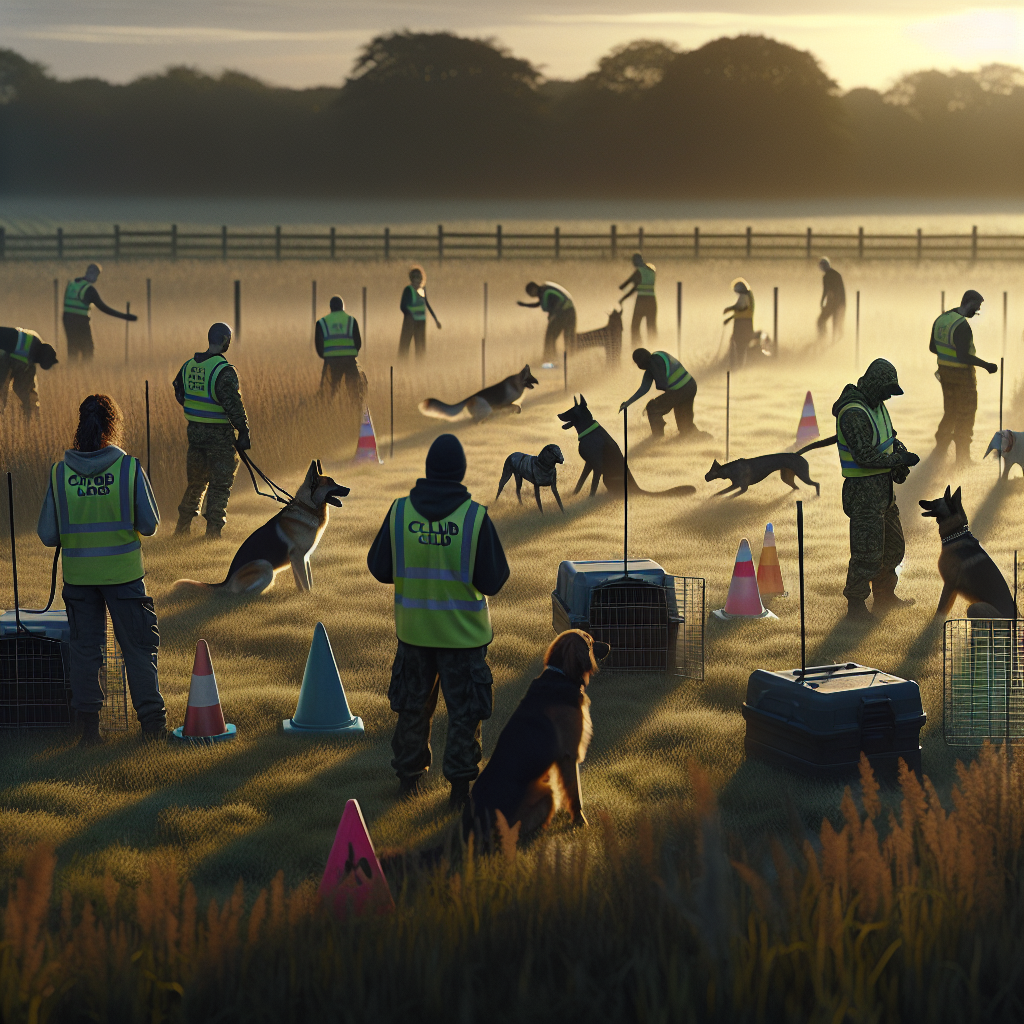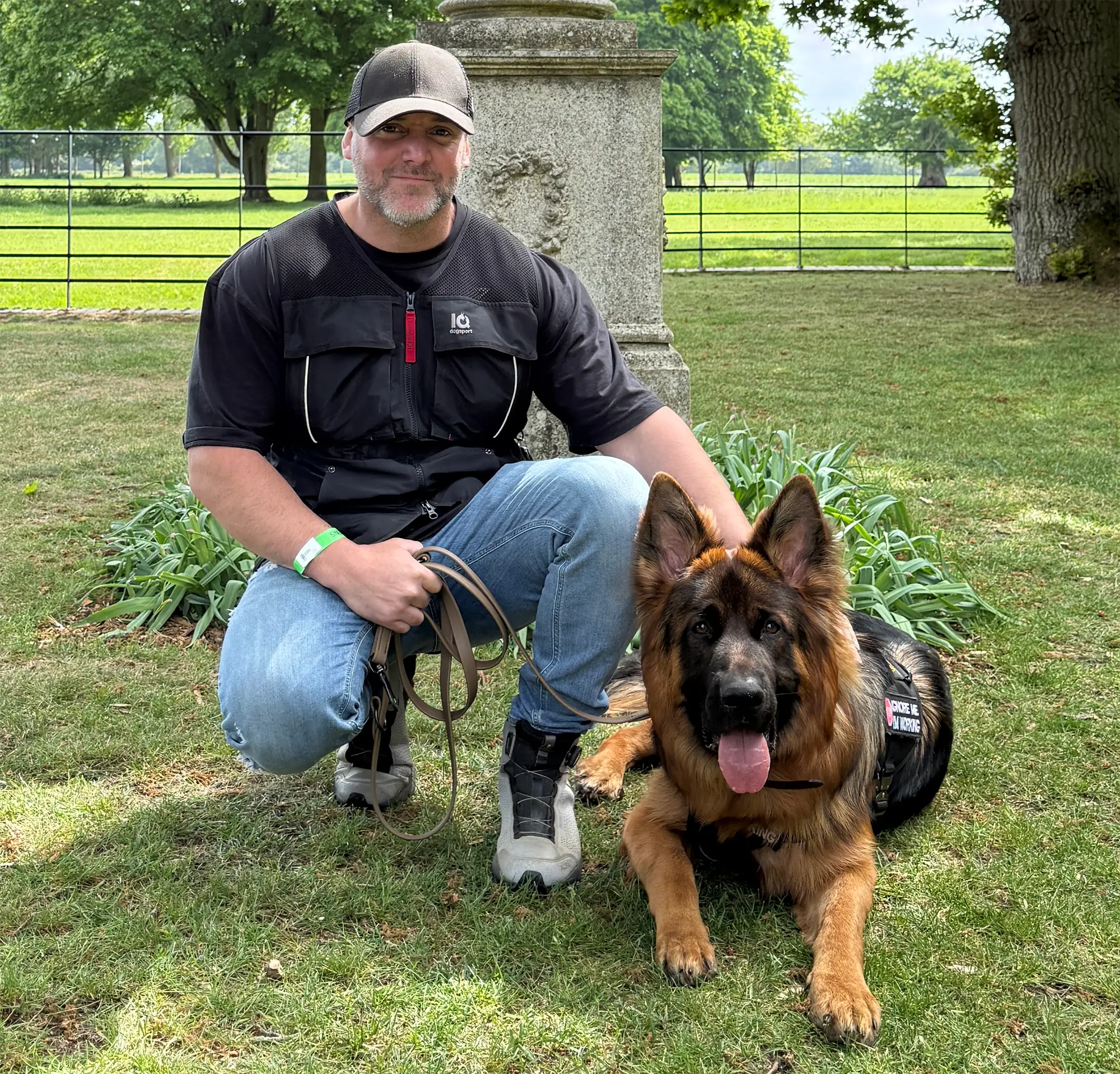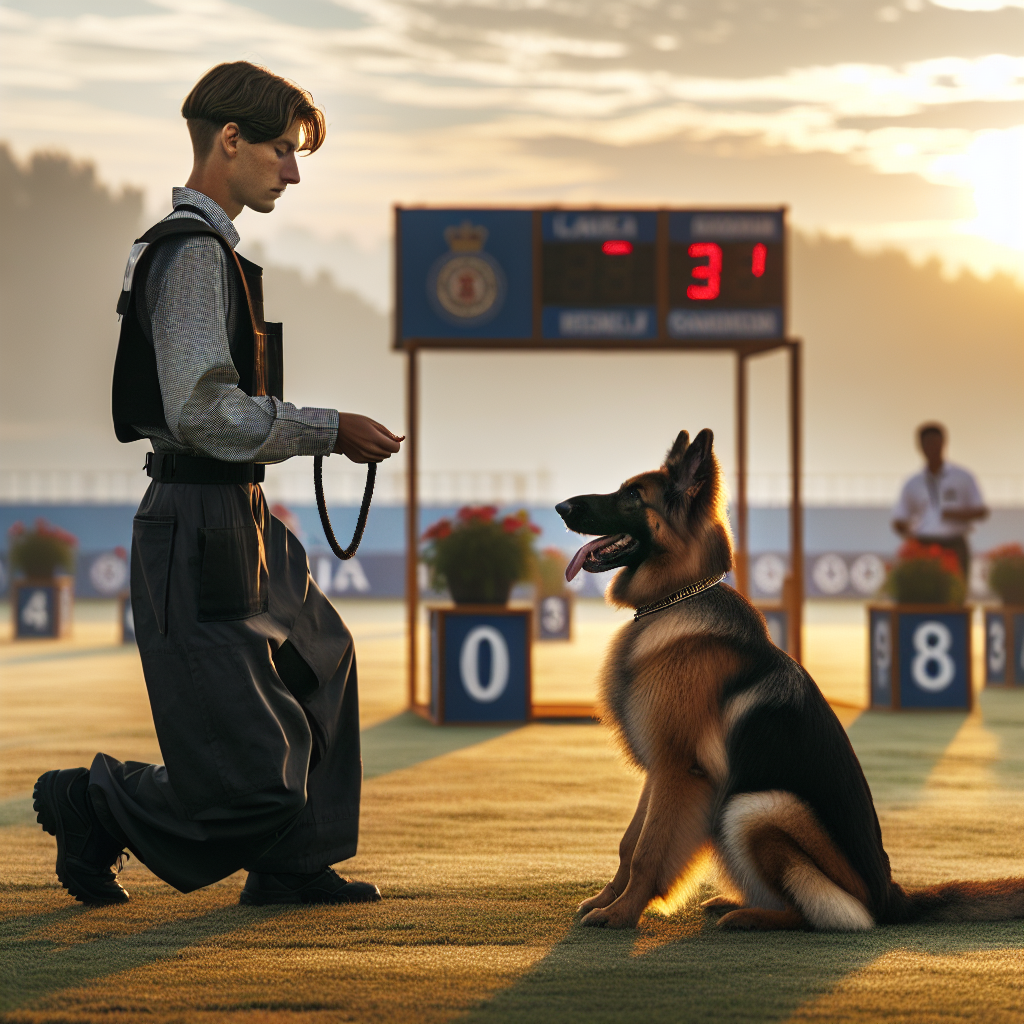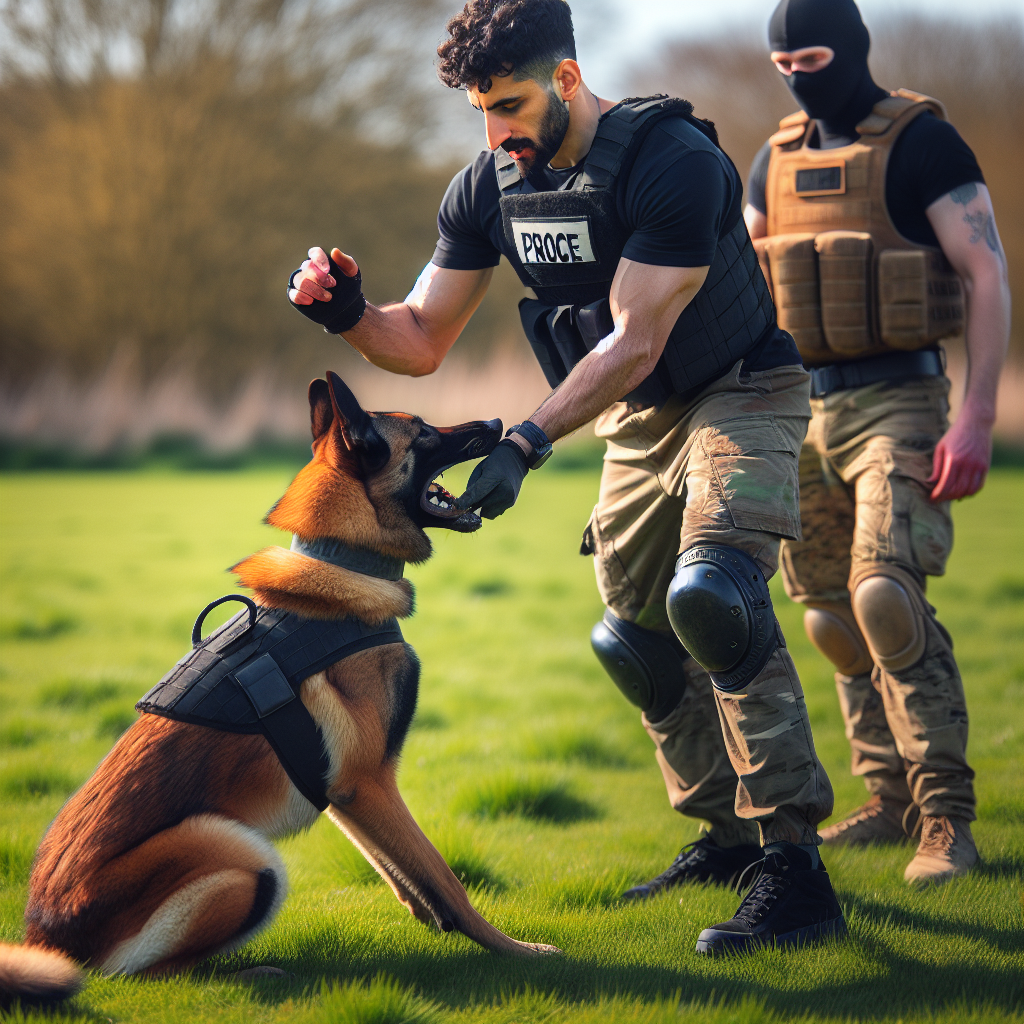IGP Club Training Day Structure

IGP Club Training Day Structure
An IGP club training day works best when it follows a clear plan from first check in to the final debrief. At Smart Dog Training, every IGP club training day runs on the Smart Method so dogs learn with clarity, progress with confidence, and perform under real pressure. Sessions are led by a certified Smart Master Dog Trainer to keep work fair, safe, and productive for every team.
The goal is simple. We build reliable behaviour that holds together in sport and in life. A well run IGP club training day follows a structured flow so each dog gets the right workload, the right coaching, and the right recovery windows. With this approach your training time turns into results you can count on.
The Smart Method Framework For Club Days
All training at Smart Dog Training follows the Smart Method. This system balances structure, motivation, and accountability. Its five pillars guide every IGP club training day:
- Clarity. Commands and markers are precise so the dog knows exactly what earns reward and what ends a rep.
- Pressure and Release. Fair guidance, a clear release, then timely reward. We build responsibility without conflict.
- Motivation. Food, toys, and play keep engagement high and the dog eager to work.
- Progression. We add distraction, duration, and difficulty step by step until behaviour holds anywhere.
- Trust. Work strengthens the bond between dog and handler, producing calm and confident responses.
These pillars shape the plan for the IGP club training day and the coaching inside each rep.
Who Attends and What Roles Matter
A productive IGP club training day starts with a capable team. At Smart Dog Training we assign roles so the day stays on track:
- Lead coach. A Smart Master Dog Trainer sets goals, manages safety, and keeps timing tight.
- Assistant coaches. SMDT mentees or advanced handlers help run equipment, mark reps, and film.
- Helper for protection. A trained helper works grips and drives to a plan approved by the lead coach.
- Track layer. Sets tracks to the right level for each dog and records placement.
- Handlers. Arrive with prepared goals, kit ready, and a dog warmed up when called.
- Field support. Manages staging, rest zones, water, and cleanup so the field stays professional.
Pre Day Planning and Equipment Checklist
Preparation decides how much work you can get done. Before the IGP club training day, the coach confirms the dog list, assigns time slots, and sets individual goals. Equipment is checked and staged:
- Obedience. Long line, short leash, place board, cones, dumbbells, jump, toy rewards, food rewards, markers.
- Tracking. Flags, articles, scent pads, rewards, tracking lines, harnesses, water, and shade.
- Protection. Sleeve, wedge, whip with noise, soft stick, blinds, back tie, padded line, hidden reward.
- Welfare. Crates, shade, water, first aid kit, waste bins, towels, non slip surfaces.
- Media and records. Phones for video, training logs, pens, and checklists.
Safety and Welfare Protocols
Safety underpins performance. A Smart Dog Training coach walks the field, checks footing, removes hazards, and marks boundaries. We set a quiet staging area for dogs to rest in crates with shade and water. Heat, cold, and wind are planned for so each dog can focus. Clear rules prevent dog to dog contact and keep pressure low off the field. A fair IGP club training day protects the dog’s body and mind so learning sticks.
Arrival, Check In, and Staging
Teams arrive early with dogs pottied and relaxed. The coach confirms the plan, places handlers on a rotation board, and sets warm up times. Each dog has a crate or safe rest spot. Handlers keep notes, markers, and rewards close. The energy is organised and calm so focus builds before the first rep.
Structured Warm Up and Focus
Before reps begin we want a dog that is loose, engaged, and ready to earn. A Smart warm up is short and specific:
- Joint prep. Easy movement and gentle range of motion.
- Engagement. Hand feeding, marker games, and toy play that switches on attention.
- Skill primer. Two or three quick win exercises that mirror the session goal.
- Calm set. A brief settle before the call up so arousal is balanced.
Warm ups are personal to each team. They should be repeatable and consistent from one IGP club training day to the next.
Club Briefing and Individual Goals
At the start of the IGP club training day, the coach runs a short briefing. We set field rules, confirm the schedule, and review each dog’s goal for the day. Targets are clear and measurable. For example, a two step front present with still hands, a full calm down in a hold and bark, or one article indication with no creep. Clear aims prevent busy work and make progress visible.
Phase One Tracking Block
Many club days begin with tracking while the ground is cool. A Smart tracking block follows this order:
- Plan. Choose track length, turns, articles, and wind exposure to match the dog.
- Lay track. Place food or articles as planned and record the map.
- Age. Allow the right track age for the dog’s stage.
- Run. Work the track calmly with a steady line. Reward correct nose work and indications.
- Review. Note accuracy, drift, line handling, and any stress signs.
We protect the dog’s confidence by scaling difficulty only when behaviour is consistent. Pressure and Release is used where fair. For example, a gentle pause at the line for loss of nose work, then release and reward when the dog returns to scent. That keeps the lesson clear without conflict.
Phase Two Obedience Block
After tracking and a rest window, we move to obedience. The Smart approach builds clean mechanics and steady emotion. A typical set includes:
- Heeling focus. Short lines with clear markers. We reward rhythm, head position, and straightness.
- Station training. Place work to build off switch control between reps.
- Positions. Fast sits, downs, and stands with exact footwork from the handler.
- Retrieves. Calm grips on the dumbbell, straight front, and quick out on a release marker.
- Send away prep. Strong target drive with a reliable down at distance.
Every obedience rep uses precise timing. Clarity comes from consistent markers, fair criteria, and an immediate reward or a clean reset. This is where Smart coaching shines. We coach the human first so the dog gets the message.
Phase Three Protection Block
Protection is where many teams lose structure. A Smart IGP club training day keeps protection orderly, fair, and purposeful. The helper works to a written plan approved by the coach:
- Drive building for green dogs with short wins and calm outs.
- Bark and hold with clear responsibility and no body conflict.
- Re attack patterns that reward grip quality, not chaos.
- Line handling that supports entries and keeps the picture safe.
- Out and guard with immediate release to a new task or a neutral hold.
We build trust by making the picture simple and consistent. The helper, handler, and coach communicate before and after every rep. Grip quality, power, and recovery are logged so we know when to progress.
Rotation, Timing, and Workload
Time management decides output. A smooth IGP club training day follows a clear rotation:
- Call up. Dog A on deck, Dog B in warm up, Dog C in rest.
- Work window. Two to five minutes for most reps, then a clear end.
- Reset. Handler notes, dog to crate, water, and shade.
- Debrief. Quick feedback, then plan the next rep or close the session.
Short and focused work prevents drift. Dogs finish on a win and rest enough to think. This structure removes the guesswork and allows more dogs to get quality reps.
Coaching Mechanics, Markers, and Clarity
Great sport work is handler driven. The coach checks stance, leash hand, delivery hand, and eye line. We apply the Smart Method markers consistently so the dog always knows what pays:
- Reward marker. Releases the dog to food or toy with speed.
- Keep going marker. Tells the dog the work that earns reward is still happening.
- No reward marker. Calm reset without pressure or emotion.
Clear language builds faster progress rep after rep, week after week, and from one IGP club training day to the next.
Using Pressure and Release Without Conflict
Pressure and Release is one of our five pillars. We use it with fairness and timing so the dog accepts guidance and grows in responsibility:
- Apply gentle pressure only when the dog understands the task.
- Release the moment the dog returns to the correct choice.
- Reward after the release to confirm the lesson.
This approach sharpens behaviour while protecting the dog’s mindset. It is the Smart way to create reliability under trial style stress.
Motivation and Reward Schedules That Work
Motivation keeps the dog in the game. We vary food, toys, and play to suit the dog in front of us. Reward schedules are simple:
- High rate early to create desire.
- Variable reward once the skill is fluent.
- Jackpot on major wins to cement learning.
We keep excitement useful, not wild. The dog learns to switch between drive and calm. That balance is a trademark outcome of a Smart IGP club training day.
Progression Across Weeks and Months
Progression means we layer difficulty step by step. The coach decides when to add distraction, duration, or distance. Examples:
- Tracking. Longer legs, fewer food drops, harder turns, and older scent.
- Obedience. More precise footwork, longer downs, faster fronts, and cleaner finishes.
- Protection. Firmer grips, longer guards, more complex re attacks, and stronger outs.
We never stack all variables at once. One variable moves while the others support success. This is how a Smart IGP club training day delivers steady gains without setbacks.
Recording Data and Setting Criteria
Smart teams write things down. Each rep earns a quick note. What was the criterion, what happened, what will change next time. Video is clipped and stored with the notes. Over time this record shows trends and tells you when to push or hold. Consistent data turns a good IGP club training day into a clear path to trial.
Young Dogs and Puppies
For young dogs the plan is shorter and lighter. We build engagement, toy play, calm handling, and early markers. Tracking is scent games and short pads. Protection is foundation work with a wedge and simple wins. We protect joints and keep emotion balanced. Every moment teaches the dog that training is safe, fun, and predictable.
Pet Handlers Inside a Sport Day
Many pet owners attend for obedience and stability. The structure of an IGP club training day helps them too. We use the same Smart Method to build loose leash skills, calm place work, and impulse control under real distraction. Sport structure gives pet goals a strong backbone and clear progression.
Recovery, Hydration, and Lunch Windows
Rest allows the brain to process. We schedule recovery windows between blocks. Dogs rest in crates in a quiet zone with shade and airflow. Handlers hydrate, review notes, and prep for the next block. A calm team returns to the field ready to nail the next rep.
Afternoon Challenge Set
Many club days finish with a short challenge set. The coach sets a scenario that blends skills. Examples:
- Obedience under pressure with a helper moving in the background.
- Send away from a group of handlers with food bowls placed as distraction.
- Tracking restart after a wind shift with one article at the end.
We keep it measured. The goal is to confirm reliability, not to break behaviour. The final win sends the dog home confident.
Ready to turn your dog’s behaviour around? Book a Free Assessment and connect with a certified Smart Master Dog Trainer - available across the UK.
Troubleshooting Common Issues
Even strong teams hit bumps. A Smart coach solves problems with clear steps:
- Dog is flat. Shorten reps, increase reward rate, and rebuild drive with play.
- Dog is frantic. Add place work between reps, slow the handler, and reduce variables.
- Messy outs. Teach a clean release marker away from the field, then reintroduce on the sleeve.
- Weak tracking focus. Simplify the scent picture and pay accurate nose work at once.
- Handler errors. Coach mechanics off the dog to protect learning time.
End of Day Debrief and Homework
A strong IGP club training day ends with a fast debrief. Each handler gets two clear wins and one focus point. Homework is specific and short. For example, ten two minute heel drills with exact footwork, or three short scent pads with clear line handling. We then set a target for the next club day so progress never pauses.
Field Layout and Flow
Good layout saves time. We mark zones for staging, warm up, obedience, and protection. Cones guide heel patterns. A safe back tie point is set. Flags mark tracking lines for handlers who will lay tracks for each other. Everyone knows where to go next. The field runs like a well planned event, not a free for all.
Weather Plans and Seasonal Adjustments
Weather changes the plan and the dog. In heat we shorten reps and provide shade and water at every crate. In cold we extend warm ups and protect paws. Wind and rain alter scent for tracking. The coach adjusts criteria so the dog still wins. A flexible plan keeps the IGP club training day safe and effective year round.
How Smart Dog Training Helps You Start
If you want to build a reliable program, do it under expert eyes. Smart Dog Training runs IGP club style days across the UK with certified SMDTs guiding every session. You get a proven plan, fair coaching, and steady progress. The structure of an IGP club training day, run the Smart way, turns effort into results.
What Happens In An IGP Club Training Day
To summarise the flow:
- Arrival, check in, and staged warm up
- Club briefing with clear goals and safety rules
- Tracking block with scaled difficulty
- Obedience block with precise markers and mechanics
- Protection block with fair helper work and clean outs
- Rotations that protect rest and mindset
- Afternoon challenge set to confirm reliability
- Debrief and homework so progress continues
FAQs
What is the purpose of an IGP club training day
It delivers structured work across tracking, obedience, and protection so dogs and handlers make clear progress. Smart Dog Training runs the day with the Smart Method so results hold in real life and in sport.
How long is a typical IGP club training day
Most run four to six hours with planned rest windows. The exact length depends on the number of teams and the goals set by the Smart coach.
How do you fit tracking, obedience, and protection into one day
We plan blocks, set rotations, and keep reps short and focused. Each skill has a clear goal. Handlers work, rest, review, then repeat. This structure makes the most of your time.
Is an IGP club training day suitable for young dogs
Yes with a modified plan. We keep sessions short and positive. We focus on engagement, play, and early foundations under the guidance of a Smart Master Dog Trainer.
What should I bring to an IGP club training day
Crate, water, food rewards, toy rewards, leashes, long line, tracking gear, and a training log. Dress for the weather and arrive early to warm up.
How do you keep protection work safe
Safety comes from planning and fair pictures. A trained helper follows the Smart coach’s plan. We build grips and responsibility without conflict, and we end on clear wins.
Can pet owners benefit from this structure
Yes. The structure of an IGP club training day builds calm, reliable obedience under distraction. Pet teams gain clear rules, better engagement, and steady improvement.
How do I join a Smart IGP club day
Start with a simple consultation so we can match you to the right coach and plan.
Conclusion
A well run IGP club training day is more than a timetable. It is a proven system that turns effort into dependable behaviour. Smart Dog Training uses the Smart Method to shape every phase, from tracking to obedience to protection. Clear goals, fair guidance, and thoughtful rewards build trust and performance. With certified Smart Master Dog Trainers leading the way, you know every rep serves a purpose and every day moves you forward.
Your dog deserves training that truly works. With certified Smart Master Dog Trainers (SMDTs) nationwide, you'll get proven results backed by the UK's most trusted dog training network. Find a Trainer Near You



